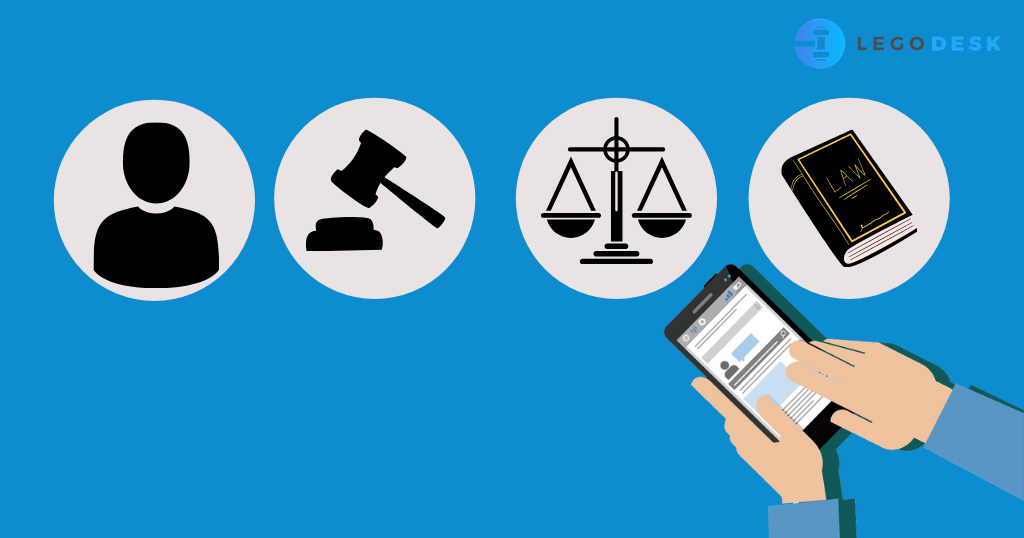The ‘new age,’ the ‘era of the pandemic,’ and ‘digital transformation’ have become practically synonymous terms. With lockdowns, social distancing, and people embracing technology to overcome the challenges of today, the legal world, just like all other industries, has started adapting to all things digital.
Today we’ll talk about how legal firms, companies, and bodies can, and why they should embrace digital transformation with minimal cost.

Single Source of Truth
Arguably the biggest challenge in the legal industry has been rooted in traditional data collecting and processing. Each branch of a company would compile data on old PCs, and even if we completely neglect the fact that heaps of information are being corrupted this way, the communication and collaboration between the branches often take months to achieve satisfactory results.
The concept of SSOT is not new per se, but it has helped the vast majority of brands embark on the process of optimizing their companies and prepare for future digital plans and strategies.
The process of adopting the SSOT concept is fairly cheap but quite intricate and complex. Obscure PC technologies need to be replaced with more modern devices, the hierarchy-exclusive data plan somewhat revised, and methods of business intelligence acquisition shifted from analog (paper) to digital (computer).
Digital communication
Business texts, calls, and messages are not going anywhere in the next decade or two, or at least that’s what the world believed before the pandemic took place. According to a Sage Pub 2020 survey, 43% of test subjects are still using text messages, 36% use voice calls and texts, and 35% use social media exclusively to communicate.
However, fast-forward to today, video calls, e-mails, and social media communication tools are considered drastically more useful and versatile. As far as the legal industry is concerned, the ability to host conference calls, and even hold court via Skype or Zoom has been a game-changer, allowing government bodies to continue working in the midst of the pandemic.
Law firms and companies are encouraged to embrace digital communication tools for several reasons. First and foremost, tools created by prominent brands are free to use, at least as far as the basic, most essential features are of concern.
Secondly, digital communication tools offer superior video call features when compared to alternatives (social media, smartphone video call, and such).
Thirdly, more advanced features of top-tier digital communication tools offer user-friendly scheduling, password locks, and numerous other abilities that social media and email-based communication can’t afford.
Customer Experience, Law Firms, and Digital Reviewing Platforms
The rapid influx of information has changed the way law firms interact with potential clients, build their image, and ultimately establish their reputation. The ‘word of mouth’ concept has almost completely gone, being replaced by reviewing platforms.
Big brands are facing stagnation while smaller ones, who’ve embraced digital transformation flourish. As stated by Eric Pearson, the CIO of International Hotel Group, ‘It’s no longer the big beating the small, but the fast beating the slow’.
The digital approach to customer experience and feedback is more relevant than ever, especially given the fact that recommendations are a relic of a bygone age – reviews have replaced referrals, and are remarkably close to stamping this trend out of existence.
Law companies who truly value customer experience and satisfaction should embrace digital reviews, as they offer valuable, lasting insight into potential mistakes. Today, words of praise build Google ratings in addition to bolstering the client pool, and positive ratings affect the online presence and visibility of brands.
Websites and Link Building
While websites and links have been the bread and butter for thousands of bloggers, influencers, and online companies, their importance is now showing in the world of legal firms as well. Reputable companies need to be aware of the fact that many fresh players are entering the race for clients, and they are fully digital-enabled from the very start.
Websites are the new spokespersons for legal firms, and links are the affiliates that provide additional credibility. One of the main things all legal firms need to address in order to adapt to the digital world of today is their online presence, image, and statement.
While building an up-to-date website may require thousands of dollars, sprucing up and reinvigorating an old one is much cheaper and almost equally effective. Using link building is completely free, yet many companies never realized its importance.
Clients would usually come in person and inquire about the costs, past cases, options, and anything of the like, and now such options are fairly limited. By optimizing their website and introducing links to relevant services, case studies, employees, and such, law firms can create a more user-friendly platform with high chances of becoming future-proof, at least for the next several years.

